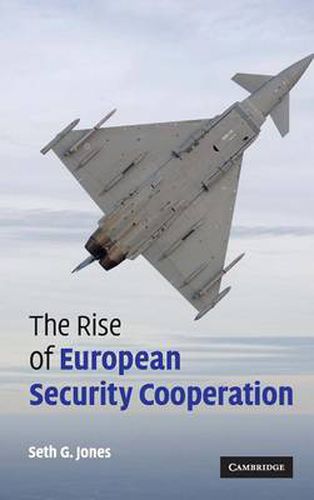Readings Newsletter
Become a Readings Member to make your shopping experience even easier.
Sign in or sign up for free!
You’re not far away from qualifying for FREE standard shipping within Australia
You’ve qualified for FREE standard shipping within Australia
The cart is loading…






One of the most striking developments in recent international politics has been the significant increase in security cooperation among European Union states. Seth Jones argues that this increase in cooperation, in areas such as economic sanctions, weapons production and collaboration among military forces, has occurred because of the changing structure of the international and regional systems. Since the end of the Cold War, the international system has shifted from a bipolar to a unipolar structure characterized by United States dominance. This has caused EU states to cooperate in the security realm to increase their ability to project power abroad and to decrease reliance on the US. Furthermore, European leaders in the early 1990s adopted a ‘binding’ strategy to ensure long-term peace on the continent, suggesting that security cooperation is caused by a desire to preserve peace in Europe whilst building power abroad.
$9.00 standard shipping within Australia
FREE standard shipping within Australia for orders over $100.00
Express & International shipping calculated at checkout
One of the most striking developments in recent international politics has been the significant increase in security cooperation among European Union states. Seth Jones argues that this increase in cooperation, in areas such as economic sanctions, weapons production and collaboration among military forces, has occurred because of the changing structure of the international and regional systems. Since the end of the Cold War, the international system has shifted from a bipolar to a unipolar structure characterized by United States dominance. This has caused EU states to cooperate in the security realm to increase their ability to project power abroad and to decrease reliance on the US. Furthermore, European leaders in the early 1990s adopted a ‘binding’ strategy to ensure long-term peace on the continent, suggesting that security cooperation is caused by a desire to preserve peace in Europe whilst building power abroad.